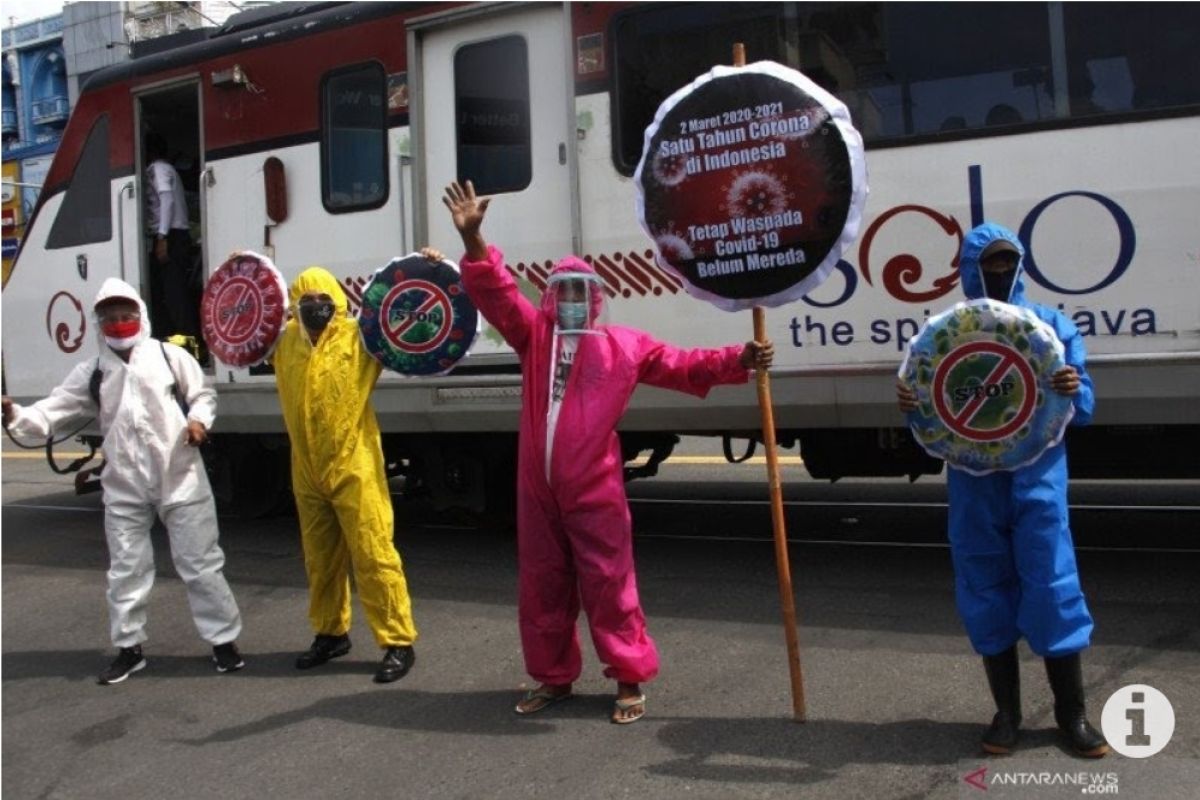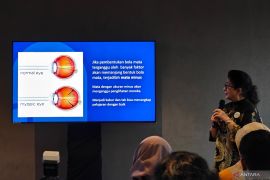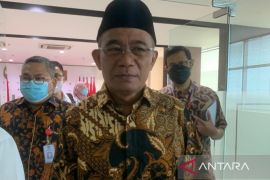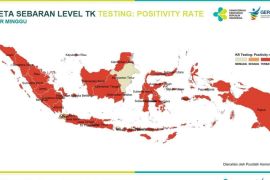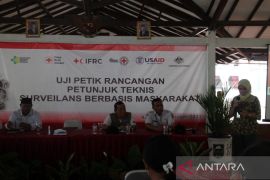According to the Health Ministry’s third serological survey (serosurvey), which was held across the country in July 2022, 98.5 percent of the Indonesian population has developed antibodies against COVID-19.
Nevertheless, as the level of immunity among people can vary, getting a third or booster dose is essential to strengthen immunity and reduce the risk of coronavirus transmission.
Immunity level and community immunity are among the essential indicators that the World Health Organization (WHO) will consider in declaring an “end” to the pandemic.
According to data provided by the COVID-19 Handling Task Force, as of September 27, as many as 204,511,652 Indonesians have received the first vaccine dose, 171,117,113 have been administered the second dose, 63,308,151 have taken the third dose or first booster, and 598,272 have received the fourth dose or second booster.
As the number of people who have received the booster dose is still relatively low, the coverage of booster dose vaccinations needs to be increased, especially in regions with low coverage.
The Ministry of Health has pushed regional heads to continue carrying out COVID-19 vaccinations by cooperating with various parties.
The opening of vaccination centers in public places needs to be intensified, just like during the Eid homecoming period in April, to bring vaccination services closer to the community.
By the end of the year, it is targeted that at least 50 percent of the community will have received the first booster dose to achieve community immunity.
Expediting vaccinations
Health Minister Budi Gunadi Sadikin has predicted that the community’s immunity will decline in early 2023. Thus, a strategy to accelerate booster vaccinations is needed to reach 100 million recipients next year.
The strategy needs to be implemented to anticipate a spike in cases from a new COVID-19 wave that may occur unexpectedly since the process of virus mutations occurs naturally and persists in the community for a long time, even if the pandemic is declared over.
The COVID-19 immunization rate has declined to an average of 65,645 vaccinations per day since August this year. In comparison, in April, daily vaccinations had reached nearly 1.4 million.
Vaccinations need to be accelerated so that more provinces in the country can realize more than 50 percent booster dose coverage. This is because since the booster vaccinations were launched on January 12, only Bali, Jakarta, and Riau Islands provinces have reached the 50-percent mark in terms of coverage.
Bali has the highest rank with a coverage of 69.8 percent, followed by Jakarta (66.0 percent) and the Riau Islands (52.1 percent).
So far, the vaccination acceleration strategy initiated by the Ministry of Health has not been fully disseminated to the public. However, some of the patterns that were applied during the 2022 Eid homecoming period are confirmed to have been re-adopted.
The Ministry of Health has stated its commitment to maintaining the availability of COVID-19 vaccine doses in the country by buying locally made vaccines, namely Indovac from state-owned pharmaceutical firm PT Bio Farma and Inavac from PT Biotis Pharmaceuticals Indonesia next year.
PT Bio Farma said that it is ready to produce 20 million Indovac doses in the initial phase of production.
The number can be increased to 40 million doses per year in 2023 with an increase in production facilities, president director of PT Bio Farma, Honesti Basyir, informed. Thereafter, in 2024, the production capacity can be increased to 100 million doses per year, depending on the need and demand.
Meanwhile, PT Biotis said that it is ready to cover the vaccine needs of the country, which include boosters for adults, adolescents, and children.
The company can produce up to 20 million vaccine doses per month. However, it will aim to produce 5 million doses per month, especially in the initial phase.
Health emergency status
Epidemiologists from the University of Indonesia's Faculty of Public Health, Pandu Riono and Iwan Ariawan, are in agreement that Indonesia is now ready to exit the health emergency phase of the COVID-19 pandemic.
The implementation of public activity restrictions (PPKM) is the first indicator of a health emergency situation in a country, which the government must lift if the pandemic situation is considered fully under control.
Currently, all regions in the country are implementing Level 1 PPKM, which means restrictions are being eased.
Ariawan, during a virtual event on September 23, said that community transmission and the COVID-19 response capacity have indicated a controlled situation as of September 21.
The incidence of COVID-19 cases in Indonesia has been recorded at around 5.56 per 100,000 population per week or at Level 1 community transmission indicator.
The incidence of hospitalization has been recorded at 0.79 per 100,000 population per week or at Level 1. The incidence of death has been recorded at 0.04 per 100,000 population per week or at Level 1.
The positivity rate indicator, based on testing, has reached 7.16 percent per week, or is still above the World Health Organization (WHO) safety threshold of a maximum of 5 percent of the total population.
As for tracing, it is at an adequate response capacity level, with a close contact ratio of 11.36 percent per week, indicating a moderate level. Then, the treatment indicator has reached an average of 5.26 percent per week.
The revocation of the PPKM is expected to make people believe that COVID-19 is no longer a frightening disease because all facilities and infrastructures, such as hospital care, health workers, medicines, and vaccines, will remain available.
In Indonesia, two emergency statuses related to the pandemic have been set by the government through Presidential Decree Number 11 of 2020 on the declaration of coronavirus disease 2019 as a public health emergency and Presidential Decree Number 12 of 2020 on the stipulation of the non-natural disaster of the spread of COVID-19 as a national disaster.
Earlier, WHO director general Dr. Tedros Adhanom Ghebreyesus had highlighted that the end of the COVID-19 pandemic was in sight.
Nevertheless, the community must remain vigilant by maintaining the health protocols, including by continuously wearing masks when traveling outside the house and in indoor spaces. The downward trend in daily confirmed cases, deaths, and hospital occupancy in Indonesia needs to be maintained in order to keep the pandemic under control.
Coordination and collaboration of all components of the nation, from the central to regional levels, are key to keeping the pandemic situation controlled so that the endemic phase can be achieved.
Related news: East Java showcases priority to child protection through BIAN
Related news: Over 83 mln residents inoculated against COVID: West Java govt
Editor: Rahmad Nasution
Copyright © ANTARA 2022
